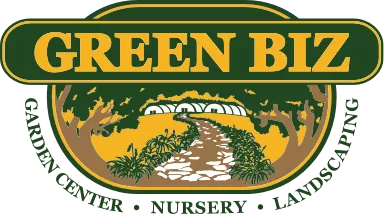Choosing the right mulch for your landscape is beneficial for the health and longevity of your yard. Consider different outcomes each mulch variety will create for your landscape. For example, course mulch decomposes slowly and deters weeds from growing. Light-weight mulch is able to retain sufficient amounts of moisture, yet decomposes fairly quickly. In areas you plan to mulch, make sure they have been thoroughly weeded and watered. Mulch can be spread at two to three inches in depth. Make sure you spread an even amount. Too much application may retain excessive amounts of moisture and actually kill the plants. Below are a variety of common mulches for your landscaping needs.
Red Mulch: Also called “waste wood,” can be dyed to match the color of cypress, pine, and other mulch products. Some of this mulch may actually be mixed with pressure-treated lumber pieces and should be amended with nitrogen fertilizer. This mulch is inexpensive and long-lasting.
Double Shredded Hardwood Mulch: Hardwood mulch further breaks down and adds nutrients to surrounding plants and soil. Shredded hardwood mulch suppresses weed growth, has a high tolerance for heavy rainfall, and decomposes slowly.
Pine Bark Nuggets: This mulch comes from pine bark and normally ranges in two-inch sizes or larger. The decomposition rate is slow and the mulch normally lasts about one year. Choose a nugget size that isn’t too large, otherwise during extended storms, larger pieces will wash out.
Brick Chips: (Wood Chips and Bark): These are more commonly used as mulches for garden beds and container gardening. The shredded variety may be applied to slopes or steep embankments, retaining water and preventing further soil erosion. Wood chips may attract termites or other insects.
Wheat Straw: Is a dense straw material and holds a good amount of water. Wheat straw is best utilized in edible gardens, along tree and shrub beds, but should not be used for ornamental flower beds.
Pine Straw: Best when applied during the winter. This does not break down as quickly as other mulches and supplies nutrients as well as organic material to your planting beds. Does not float or wash away as easily compared with other mulches. Pine straw does not attract termites or other pests. Pine straw should be used around plants that prefer acidic soil conditions.
